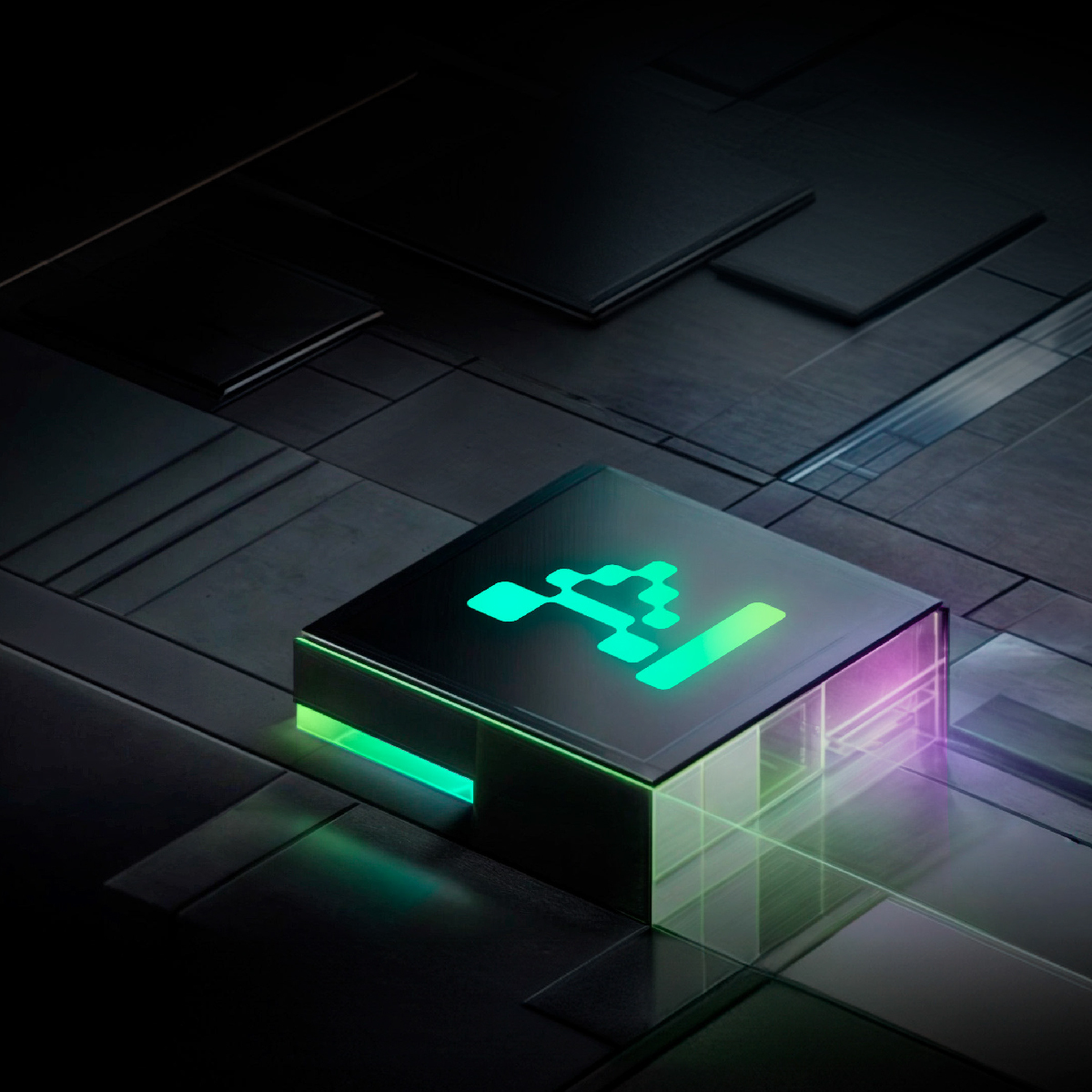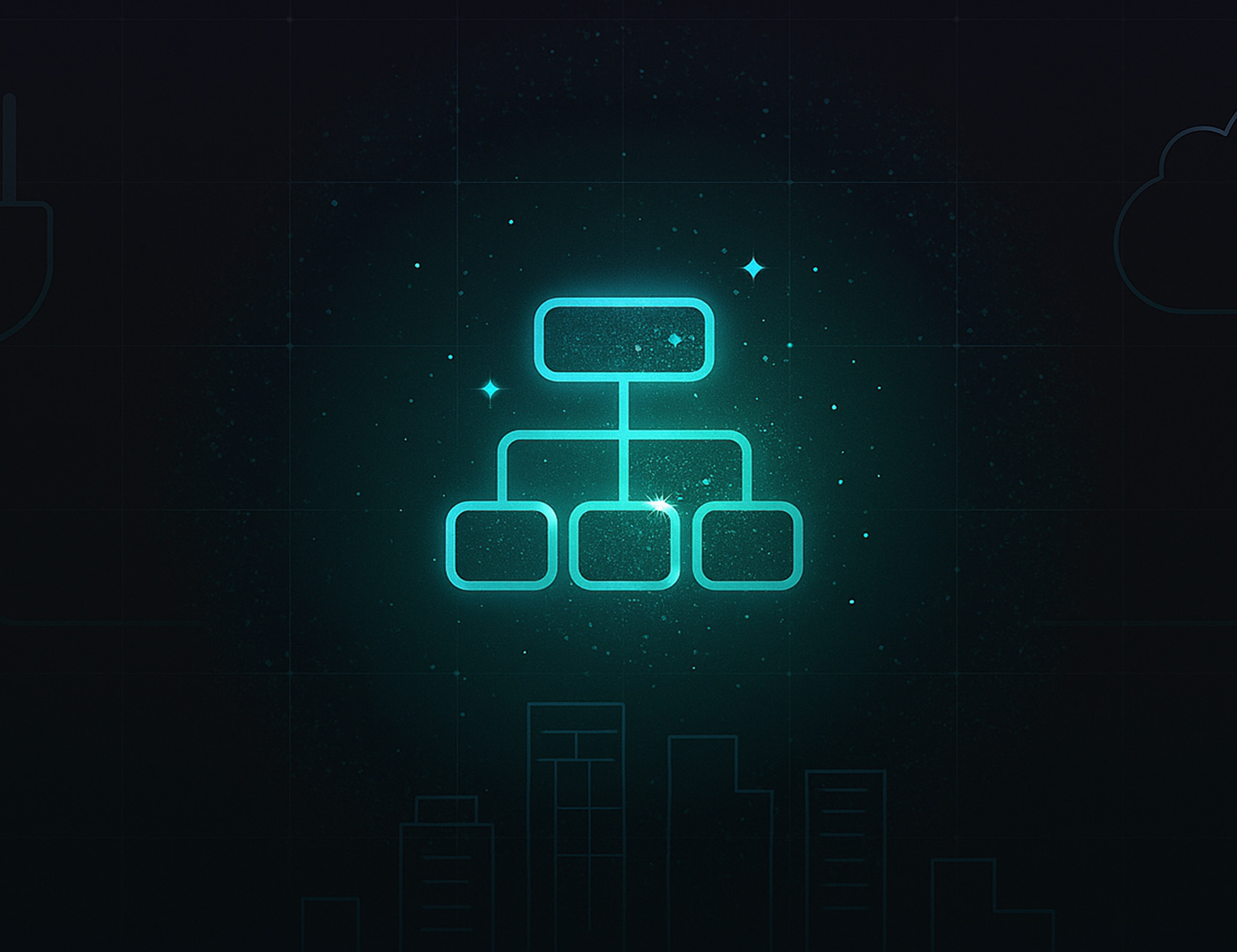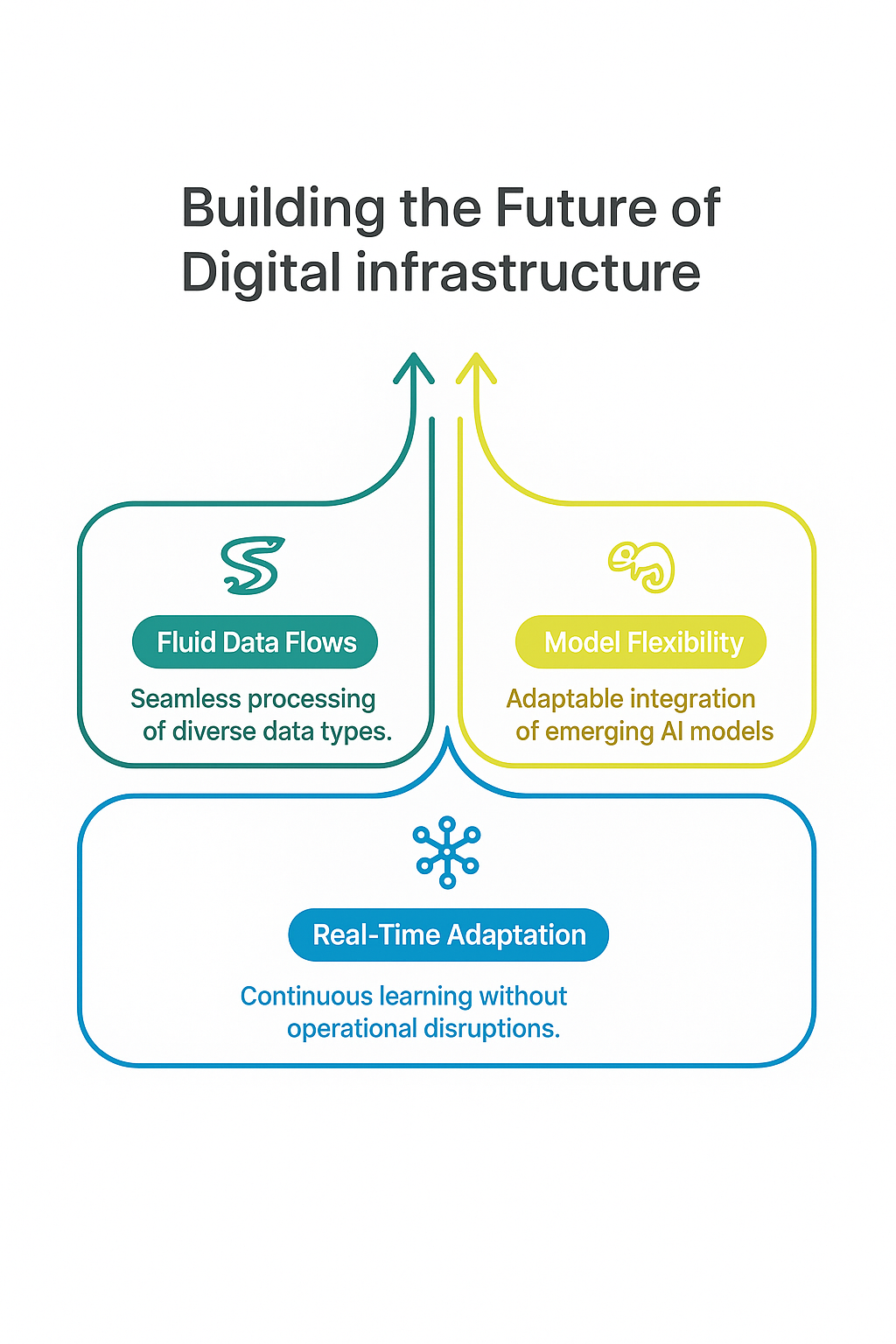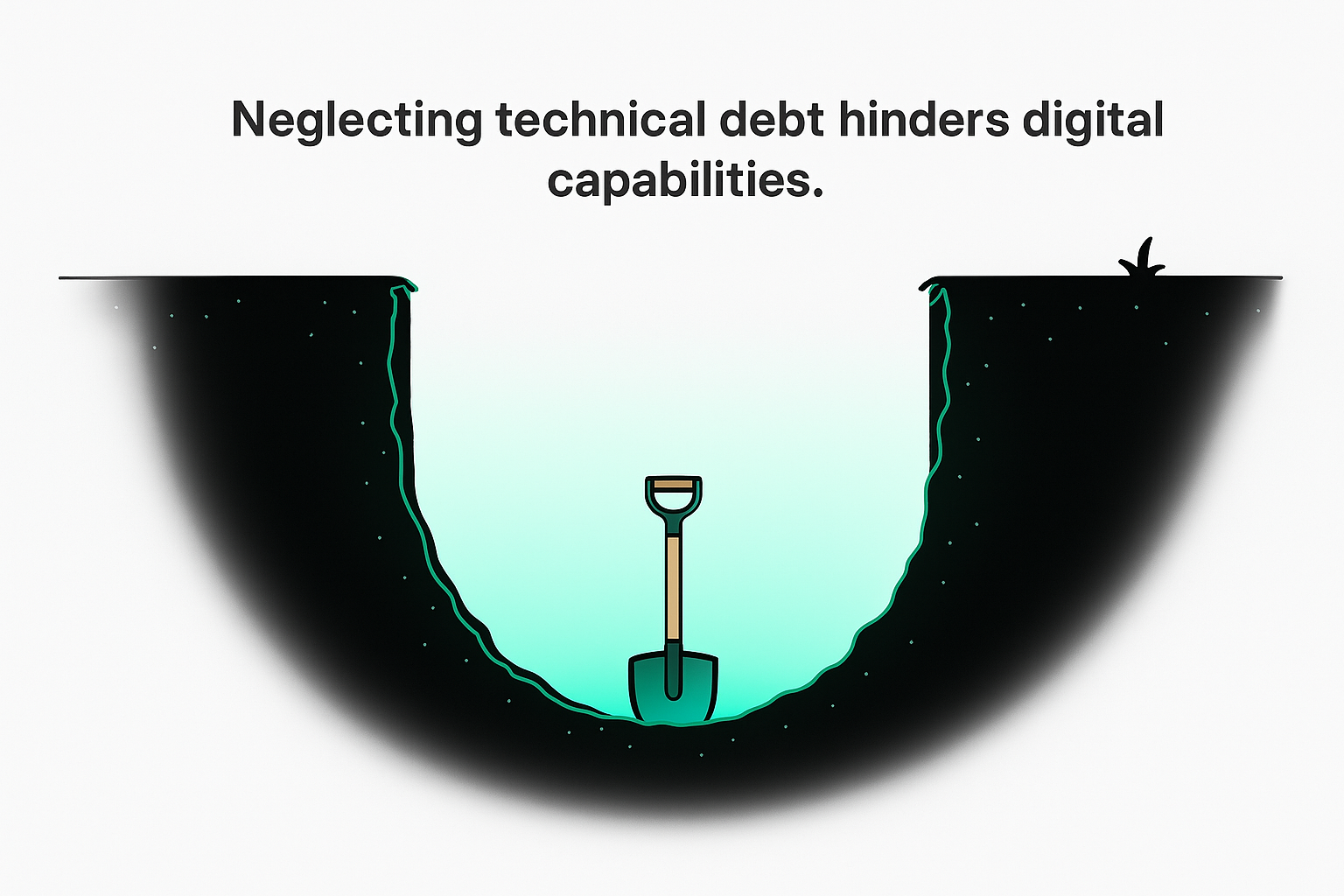Join our newsletter



We need to talk about a hard truth: only 9% of companies qualify as true "Reinventors" in today's AI-driven landscape. The rest? They're struggling with outdated digital foundations that simply can't support the generative AI revolution happening around them.
We've been working with enterprises across industries, and we keep seeing the same pattern. Companies rush to implement ChatGPT pilots and AI chatbots, then wonder why they can't scale beyond basic use cases. The answer isn't in the AI itself. It's in what lies beneath.
Think of your digital core as the central nervous system of your organization. Traditionally, this meant clean data warehouses, reliable cloud infrastructure, and integrated systems. But generative AI changes everything.
An AI-enabled digital core handles three things your current setup probably doesn't:

We recently partnered with a global manufacturing client whose product engineers were drowning in technical specifications scattered across dozens of legacy systems. Every time they needed to troubleshoot a production issue, they'd spend entire afternoons hunting through maintenance logs, supplier documentation, and quality reports just to find the root cause. Sound familiar?

Here's what separates the winners from the wannabes. Companies we classify as Reinventors are 1.8 times more likely to have best-in-class digital core capabilities. They're also 9 times more likely to invest in fixing their technical debt instead of just piling on more band-aid solutions.
These aren't coincidences. When your foundation is solid, everything else becomes possible.
Most enterprise architectures were designed for a world where data lived in neat silos and applications had predictable workflows. Generative AI operates differently. It needs to access your customer service logs, product manuals, financial reports, and operational data simultaneously. It needs to understand context across your entire organization, not just within departmental boundaries.
We see companies trying to force AI into their existing systems like cramming a smartphone into a rotary phone cradle. It may fit, but you're missing the entire point.
Smart organizations are rebuilding their data strategies from the ground up. They're creating what we call a "data and generative AI backbone" that treats information as a living, breathing resource rather than static files in folders.
Take that manufacturing client we mentioned. They implemented an AI-enabled knowledge platform that unified their technical documentation, maintenance histories, and real-time sensor data. Now their engineers ask natural language questions like "What caused similar vibration issues in our Chicago plant?" and get instant answers with supporting documentation. Production downtime decreased by 40% in the first quarter because troubleshooting went from hours to minutes.
Before you can build an AI-enabled digital core, you need to honestly assess where you stand today. We recommend evaluating three critical areas:
We're not talking about futuristic scenarios. These transformations are happening right now. Companies with robust digital cores are using AI to reinvent entire business processes, not just automate existing tasks.
One of our financial services clients used their modernized data architecture to deliver 16 million hyper-personalized customer offers within three months. An insurance company reinvented their entire underwriting workflow and increased revenue by 10%. A government agency saved 3 million operational hours while serving 20 million citizens more effectively.
The generative AI revolution isn't slowing down. New foundation models appear weekly, each with capabilities that could transform how your business operates. But only if your infrastructure can adapt quickly enough to leverage them.
We see too many organizations treating AI as another software purchase instead of the fundamental shift it represents. The companies pulling ahead understand that generative AI requires a different kind of digital foundation. One that's built for continuous change, not periodic upgrades.
Your competitors are making this transition right now. The question isn't whether your industry will be transformed by AI. It's whether you'll be leading that transformation or scrambling to catch up.
The 9% of companies we call Reinventors didn't get there by accident. They invested in the digital infrastructure that makes everything else possible. The window for joining them is still open, but it's closing fast.
We've developed a comprehensive Digital Core Maturity Assessment that evaluates your current infrastructure against the requirements for AI-enabled transformation. It takes the guesswork out of understanding where you stand and what you need to build next.
Because in the age of generative AI, having the right foundation isn't just an advantage. It's table stakes for staying in the game.